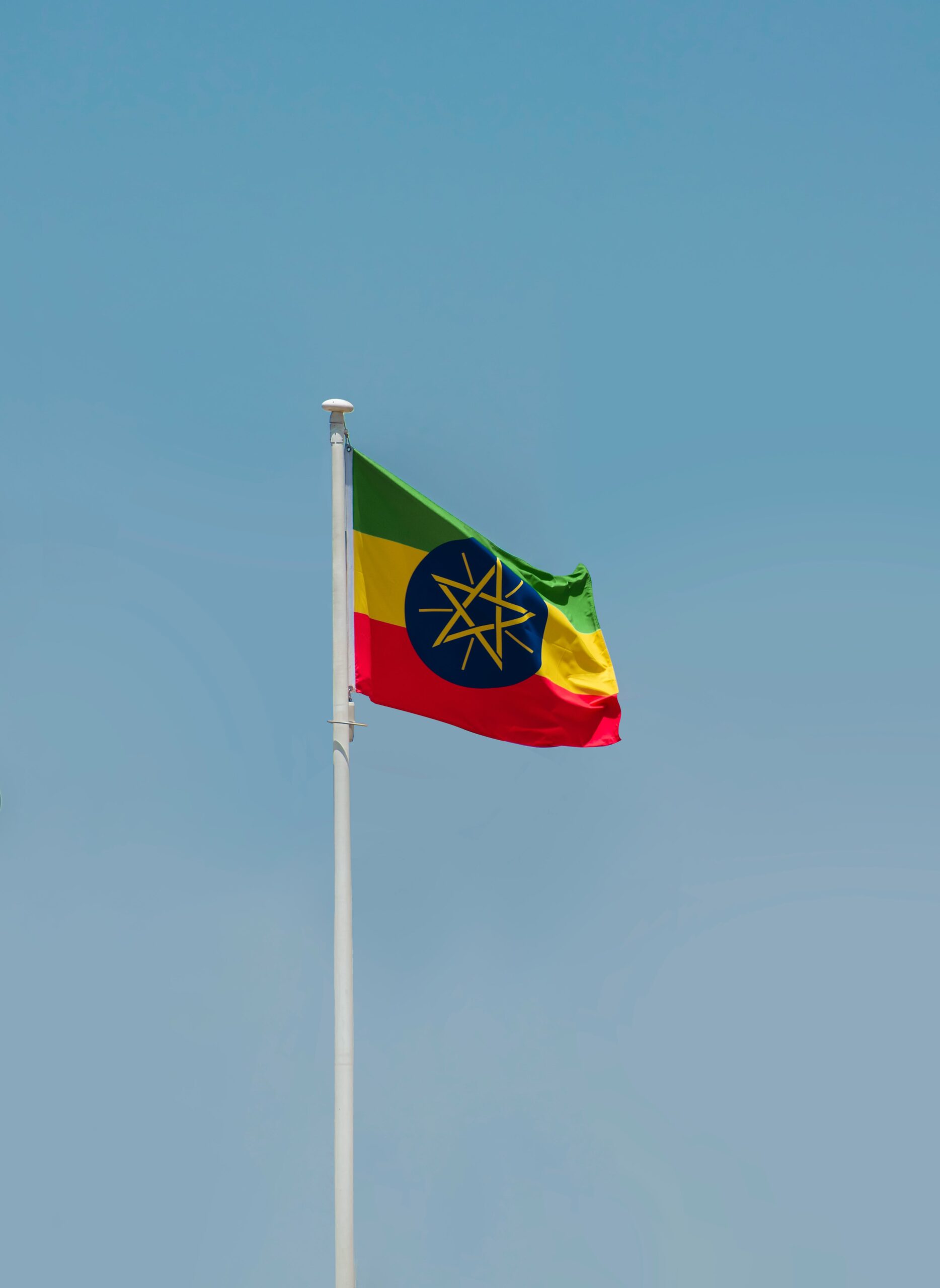How Do Ethiopians Celebrate Christmas?
How Ethiopians Celebrate Christmas
Ethiopia, a predominantly Christian country, celebrates Christmas, known as Genna or Lidet, on January 7th, following the Orthodox calendar. The long-standing traditions and cultural practices make Ethiopian Christmas a unique and vibrant festival celebrated with great enthusiasm and devotion.
Ethiopian Christmas festivities usually start on Christmas Eve with a day of fasting, where no food is consumed until the family attends the early morning church service known as "Mesorah" or "Gahad" which starts around 4:00 am. After the church service, families return home to break their fast with a special meal that includes injera (a sourdough flatbread) and various stews.
One of the most iconic traditions of Ethiopian Christmas is the ‘Genna’ game, which is similar to hockey and has been played for centuries across the country. It symbolizes the shepherds’ joy upon hearing about the birth of Jesus and is a highlight of the festive celebrations, bringing communities together in friendly competition and merriment.
During the Christmas season, Ethiopian homes and churches are adorned with beautiful hand-woven grass or palm leaves known as "Yelidanat Santa" and colorful paintings depicting biblical scenes. The atmosphere is filled with hymns, prayers, and spiritual chants that create a sense of reverence and holiness among the people.
Moreover, generosity and charity are integral parts of Ethiopian Christmas celebrations. Families and individuals participate in acts of giving and helping the less fortunate by donating food, clothes, and money to those in need. The spirit of sharing and caring for others reflects the true essence of the festive season and strengthens social bonds within communities.
Ethiopian Christmas is a joyous occasion filled with ancient traditions, religious customs, and a deep sense of community spirit. The reverence, togetherness, and cultural richness of the celebrations make it a truly special time of the year for Ethiopians across the globe.
Traditions and Customs Linked to Ethiopian Christmas
Ethiopian Christmas, known as Genna or Lidet, is celebrated on January 7th following the ancient Julian calendar. This date difference makes Ethiopian Christmas unique compared to the December 25th celebration in the Western world. The festivities leading up to Ethiopian Christmas are rich in traditions and customs that have been passed down through generations.
One of the most significant customs during Ethiopian Christmas is fasting. Many Ethiopians practice a 40-day fast called ‘Tsome Gahad’ where they abstain from meat and dairy products. The fast is broken on Christmas Eve with a feast that includes traditional dishes such as injera, a sourdough flatbread, and wat, a spicy stew.
On Christmas Eve, Ethiopians attend an overnight church service that culminates in a mass at dawn. This mass is an integral part of the celebration, with worshippers dressed in white traditional attire. After the mass, families return home to enjoy a special meal together. Gifts are exchanged, and children often receive new clothes to wear for the holiday.
Another essential tradition during Ethiopian Christmas is the game of Genna, a field hockey-like game that symbolizes the biblical shepherds who were the first to learn of Jesus’ birth. The game is played in almost every village, with teams competing against each other in a spirit of camaraderie and fun.
In rural areas, bonfires are lit on Christmas Eve as a symbol of the light that guided the Wise Men to Bethlehem. Families gather around the fire, singing songs and celebrating the joyous occasion. Traditional dances and music are also performed during the Christmas season, adding to the festive atmosphere.
Ethiopian Christmas is a time of deep spiritual reflection, joyful celebration, and community bonding. The rich tapestry of traditions and customs associated with Genna showcases the cultural heritage and religious devotion of the Ethiopian people, making it a truly unique and special holiday.
Historical Significance of Christmas in Ethiopia
Christmas in Ethiopia, also known as "Ganna" in Amharic, holds a significant historical and cultural importance in the East African nation. Unlike the widely celebrated December 25th date in the Western world, Ethiopians follow the ancient Julian calendar, placing their Christmas celebration on January 7th. This variance is due to the Orthodox Christian faith’s adherence to the older calendar.
The roots of Ethiopian Christmas date back to the early Christian era when Christianity became the state religion in the Aksumite Kingdom during the 4th century. This historical milestone marked the beginning of the fusion of Christian traditions with local customs. The Ethiopian Orthodox Tewahedo Church, established in the 1st century, plays a central role in preserving these ancient practices, making Ganna one of the most revered holidays in the country.
Christmas in Ethiopia intertwines religious observances with rich cultural traditions. The celebration typically begins with a 40-day fasting period known as "Tsome Gahad" to purify the body and soul before the feast. The faithful break their fast on Christmas Eve with a special meal that includes injera (a sourdough flatbread) served with various meat and vegetable stews.
During the Christmas Eve services, worshippers gather in churches across Ethiopia for a night of prayers, hymns, and spiritual reflection. Around midnight, the priests lead the congregation in a procession to symbolize the journey to Bethlehem. This reenactment is a poignant reminder of the biblical story of the Magi following the star to the birthplace of Jesus.
The festive mood of Ganna extends beyond religious ceremonies to include vibrant cultural displays. Traditional music, dance performances, and colorful attire contribute to the jubilant atmosphere. Families reunite to exchange gifts, share meals, and participate in feasts that showcase Ethiopia’s culinary diversity.
In conclusion, the historical significance of Christmas in Ethiopia underscores the deep-rooted connection between faith, tradition, and national identity. The enduring legacy of Ganna serves as a testament to the resilience of Ethiopian culture amidst evolving global influences.
Differences Between Ethiopian Christmas and Western Christmas
Ethiopian Christmas, also known as Genna or Ledet, is celebrated on January 7th, which follows the ancient Julian calendar. This date disparity marks one of the key differences between Ethiopian Christmas and the Western celebration on December 25th based on the Gregorian calendar. The 13-day variance results in unique traditions and customs that distinguish the Ethiopian festivities from those in Western countries.
In Ethiopia, the Christmas celebration kicks off with a 40-day fasting period known as Advent or Tsome Gahad (fast of the prophets). This fasting period excludes animal products, making it a vegan fast. The fast is broken on Christmas Day with a feast that typically includes a variety of traditional dishes. In contrast, Western Christmas traditions do not include such an extended fasting period leading up to the holiday.
Another notable difference is the way Christmas Eve is observed. In Ethiopia, churches hold late-night services that culminate in mass at dawn. The faithful then return home to enjoy a festive meal with family and friends. This stands in contrast to Western Christmas Eve traditions, where the focus tends to be on gatherings, parties, and gift-giving in the evening.
Moreover, the way the Nativity is commemorated differs between the two celebrations. In Ethiopia, a significant part of the Christmas festivities involves attending colorful processions, religious ceremonies, and reenactments of the Nativity story. These celebrations often spill out onto the streets, with people singing traditional hymns and carrying candles. Western Christmas, on the other hand, places more emphasis on decorating Christmas trees, exchanging presents, and attending church services.
One more distinction lies in the cultural music and dance that accompany Ethiopian Christmas. Traditional Ethiopian music, such as the famous Amharic Christmas carols called "Yohannes" and "Sema", play a central role in the holiday celebrations. These songs are typically sung in Ge’ez, an ancient Ethiopian language. Western Christmas, while also incorporating music and carols, tends to feature a different repertoire more familiar to Western cultures.
The differences between Ethiopian Christmas and Western Christmas extend beyond just the date of celebration. From the fasting customs to the style of festivities, each tradition reflects the unique cultural heritage of its respective region. While both celebrations center around the birth of Jesus Christ, the distinct practices and observances make Ethiopian Christmas a truly special and culturally rich experience.
Modern Influences on Ethiopian Christmas Celebrations
Ethiopian Christmas, known as Gena or Lidet, is a time-honored tradition deeply rooted in the country’s rich culture and history. While the celebration has retained many of its age-old customs, modern influences have also found their way into the festivities, shaping the way Ethiopians commemorate this joyous occasion.
One noticeable modern influence on Ethiopian Christmas celebrations is the impact of globalization. With increased connectivity and exposure to the outside world through technology and media, younger Ethiopians are incorporating elements from Western Christmas traditions into their own celebrations. This fusion of customs has brought about new ways of observing Christmas in Ethiopia, blending both local and global practices.
Another modern influence is the commercialization of the holiday season. Just like in many parts of the world, Christmas in Ethiopia has become commercialized, with businesses capitalizing on the festive spirit to promote consumerism. Shopping malls, markets, and streets are adorned with Christmas decorations, and there is a noticeable increase in the buying and exchanging of gifts during this time.
Furthermore, urbanization has played a role in shaping modern Ethiopian Christmas celebrations. As more Ethiopians move to cities in search of better opportunities, the way Christmas is celebrated has evolved. In urban areas, people often gather in public spaces, restaurants, and cafes to mark the occasion, reflecting a shift from the traditional home-centered festivities to more communal and social gatherings.
Moreover, the influence of the Ethiopian diaspora has also impacted how Christmas is celebrated in the country. Ethiopians living abroad bring back new ideas and practices from their host countries, enriching the local celebrations with diverse perspectives and experiences. This interchange of cultures contributes to the dynamic and evolving nature of Ethiopian Christmas traditions.
While Ethiopian Christmas remains deeply rooted in its age-old customs and rituals, modern influences have brought about changes in the way the holiday is observed. Globalization, commercialization, urbanization, and the diaspora have all played a role in shaping the modern Ethiopian Christmas celebrations, reflecting a blend of tradition and innovation in this festive season.
Conclusion
In Ethiopia, Christmas, known as Ganna, is a significant and joyous celebration that blends religious traditions, cultural customs, and historical significance. Ethiopians celebrate Christmas on January 7th each year, following the ancient Julian calendar. This holiday holds profound religious importance as Ethiopians commemorate the birth of Jesus Christ through a series of rituals, prayers, and festivities that encompass unique traditions specific to Ethiopian culture. These traditions, such as attending church services, fasting, feasting on traditional dishes, and engaging in community rituals, create a vibrant and spiritually enriching experience for the Ethiopian people.
Throughout Ethiopian Christmas celebrations, various customs are deeply intertwined with the country’s rich cultural heritage. One of the most prominent traditions is the early morning church service, where worshippers gather to participate in vibrant hymns, prayers, and readings. Following the service, families come together to enjoy a feast featuring traditional Ethiopian dishes such as doro wat, injera, and tej, a local honey wine. Gift-giving is also a common practice during the holiday, where children receive new clothes and other presents to mark the occasion.
The historical significance of Christmas in Ethiopia can be traced back to the early days of Christianity in the region. Legend has it that Christianity was introduced to Ethiopia in the 4th century by a Syrian monk named Frumentius. Over time, the faith took root and became a central part of Ethiopian culture, shaping the way Christmas is celebrated in the country today. The Ethiopian Orthodox Church plays a vital role in preserving these ancient traditions and ensuring that the spiritual essence of Christmas is maintained throughout the generations.
While there are some similarities between Ethiopian Christmas and Western Christmas celebrations, there are also significant differences that set them apart. The most notable distinction is the date of the holiday, with Ethiopians following the Julian calendar, which places Christmas on January 7th. Additionally, Ethiopian Christmas festivities are deeply rooted in religious practices and cultural customs that reflect the country’s unique heritage. These differences contribute to the diverse tapestry of global Christmas traditions and highlight the richness of Ethiopia’s cultural identity.
In modern times, Ethiopian Christmas celebrations have been influenced by various factors, including globalization, urbanization, and technological advancements. Younger generations are incorporating contemporary elements into the holiday, such as exchanging digital greetings, decorating Christmas trees, and organizing charity events to help those in need. Despite these modern influences, the core values of faith, family, and community continue to form the foundation of Ethiopian Christmas celebrations, ensuring that the spirit of Ganna remains strong and vibrant in the hearts of the Ethiopian people.
As Ethiopians gather with their loved ones to celebrate Christmas, they embrace a tradition that is both ancient and ever-evolving. Through a blend of religious devotion, cultural heritage, and communal spirit, Ethiopian Christmas exemplifies the beauty and diversity of the country’s cultural tapestry. This sacred holiday serves as a time of reflection, renewal, and rejoicing, bringing people together in a spirit of unity and love as they honor the birth of Jesus Christ and the rich traditions that have shaped Ethiopian Christmas for centuries.




